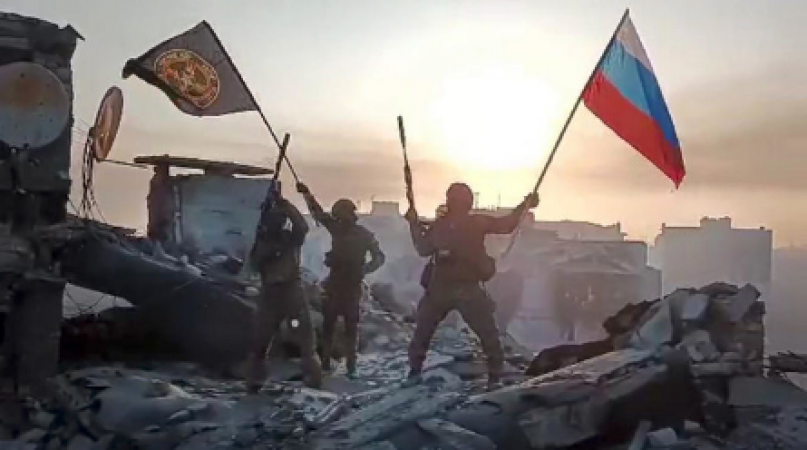
Moscow: General Sergey Surovikin, the deputy commander of Russia's military operations in Ukraine, was aware that Yevgeny Prigozhin, the leader of the mercenaries, was preparing a coup against Moscow's defence officials, according to a report in the New York Times on Tuesday.
The newspaper cited US officials who had been briefed on US intelligence about the situation and stated that the officials were "trying to learn if Gen. Sergey Surovikin, the former top Russian commander in Ukraine, helped plan Mr. Prigozhin's actions last weekend."
As President Vladimir Putin praised his armed forces for preventing a civil war, Prigozhin flew into exile in Belarus on Tuesday as part of an agreement that put an end to a weekend mutiny by his Wagner fighters.
Also Read: Fortune's feast: A special Eid sacrifice made by wealthy Bangladeshis involves camels
According to the New York Times, American officials claimed there were indications that additional Russian generals may have provided support for Prigozhin.
A request for comment from Reuters was not immediately met with a response from the Pentagon. Additionally, neither the Kremlin nor the Russian defence ministry gave Reuters an immediate response.
Also Read: Pope acknowledges pain of family as parliamentary inquiry into 'Vatican Girl' mystery moves forward
In October, Surovikin, dubbed "General Armageddon" by the Russian media, was given overall command of the operations in Ukraine. However, Chief of the General Staff Valery Gerasimov was appointed to lead the campaign in January by Russian Defence Minister Sergei Shoigu, with Surovikin remaining as his deputy.
Prigozhin was furious with Gerasimov and Shoigu prior to the mutiny, blaming them for the campaign's failures and the army's lack of support for the Wagner fighters.
Just before Prigozhin led his fighters on a so-called "march for justice," Surovikin urged the Wagner group to end their opposition to the military hierarchy and return to their bases. Over the weekend, Prigozhin began a march from Rostov-on-Don in the south of Russia, but he stopped it 200 kilometres (125 miles) from Moscow.